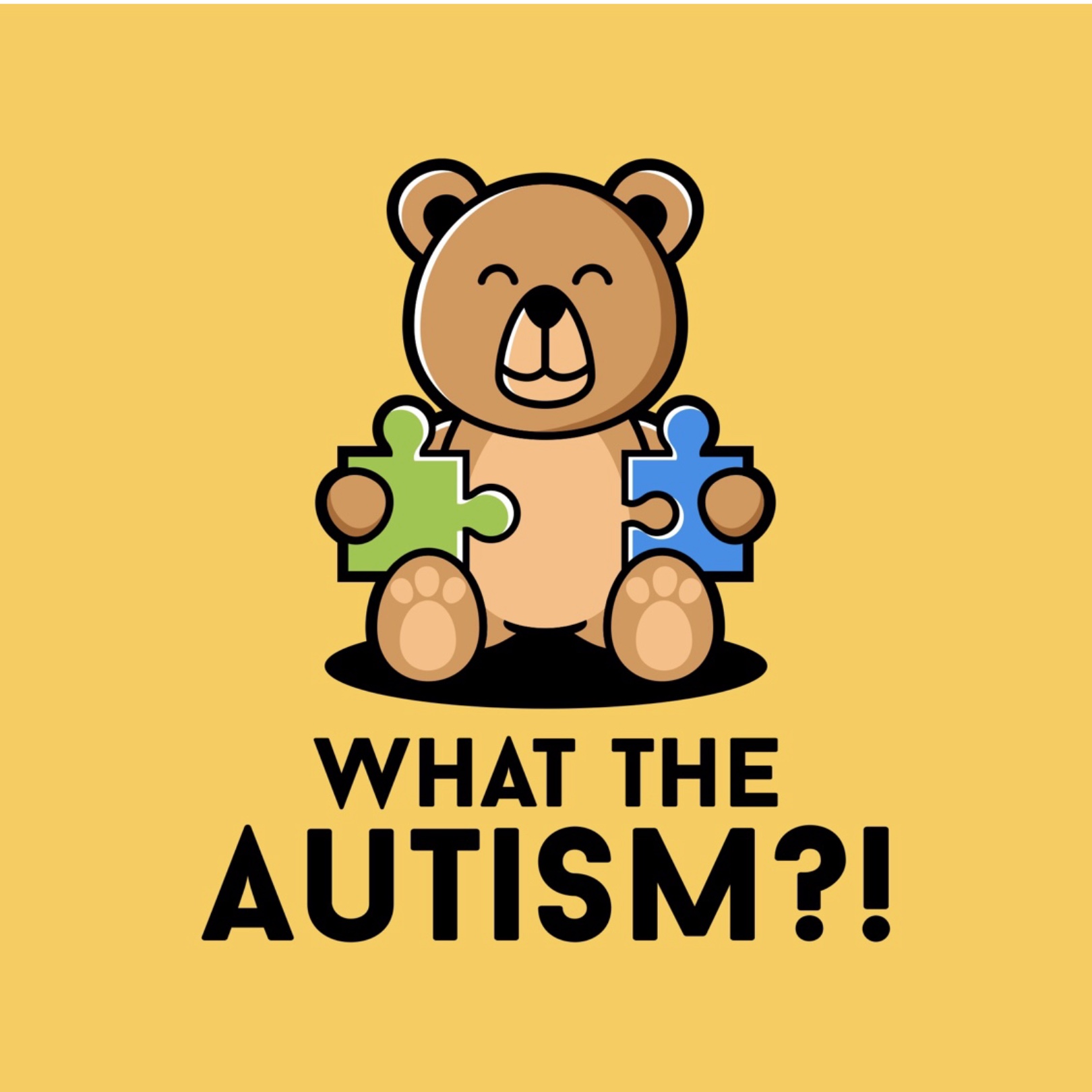Q & A Session
Welcome back to another episode here at What the Autism?! We hit our 10th episode, and I want to thank YOU the listeners from all around the world for tuning in and showing your support for our podcast! We have over 200 listeners from 24 different countries that are tuning in and I’m very excited to see our family here on this podcast channel grow! For those of you that are new here, welcome to What the Autism?! You can follow us on our Instagram and Facebook page, @whattheautism, for daily updates and if you have any questions or stories you’d like to share with us, you can email us at whattheautismpodcast@gmail.com.
To celebrate our 10th episode here, today we’ll be running a Q&A session with questions that were submitted by our listeners. If you think of additional questions throughout today’s episode, feel free to email us or dm us on IG and we’ll answer those questions throughout the upcoming podcast episodes or in future Q & A episodes.
Question:
Why did you start this podcast?
I started What the Autism?! not only because I’m passionate about the work that I do, but also because throughout the 8 years I’ve been working as a clinician, I’ve witnessed so many family members who regretted some of the choices that they made throughout the years. And it’s not their fault. These parents feared the future of their autistic son/daughter. What would happen to their child if something happens to the parents? Is anyone out there to care for their child? And out of that fear, they wanted to provide anything and everything to their child in hopes that something sticks. But often times, that results in regrettable decisions that have left many families broken, financially, relationally, mentally, and emotionally. The purpose of this podcast is to help all our families understand the scientific research that is out there and to help parents make the most INFORMED decision when it comes to treatment and diagnosis. Time is of the essence and any wrong decision can waste money, and most importantly, time...time that your child cannot afford to waste. So before making any decisions on treatment, make sure you seek out the appropriate specialists, get multiple medical opinions and make sure you are well informed of type of services your child may need.
Is it hard for high functioning Autism to be diagnosed?
When we say high functioning, this typically means that the individual doesn’t engage in high rates of maladaptive behaviors and can functionally communicate with others. Although high functioning autism may be less noticeable in the community, a credible psychologist should still be able to quickly identify if a child has autism no matter how severely impacted the diagnosis is. A high functioning autistic individual may struggle with emotional sensitivities, social difficulties, resistance to change, or certain fixations. But regardless of what type of symptoms are present, an individual that’s less severely impacted by the autism diagnosis should still be able to be diagnosed with autism if they meet the diagnostic criteria. In Episode 2 of my podcast, I review the diagnostic criteria for autism and what checkboxes psychologists are looking for when it comes to the autism diagnosis so make sure to give that episode a listen to see if your child may meet the qualifications for the autism diagnosis.
I think my child has autism...what do I do?
The most important thing is to get your child diagnosed! Autism can be diagnosed as early as 18 months! Don’t let anyone tell you other wise. If your insurance provider and/or any agencies are telling you to wait till your child is 3 years old....don’t! Because when a child turns 3 years and then action is taken to schedule a diagnosis, by the time your child starts treatment, your child is 4...and maybe even older is some cases. If this happens, your child’s window of learning opportunities gets smaller. But, if your child is over the age of 5, don’t think it’s too late. It’s always better late than never. The autism diagnosis affects children in many different ways, and I have definitely worked with some children who came to us at 5-7 years old who were able to make significant progress in their treatment program and do just fine in school. But the most important thing is that as soon as you suspect a possible diagnosis, get an appointment with a psychologist as soon as possible. And make sure you do your research and find credible psychologists that have significant experience with the autism diagnosis. This helps you get a diagnostic report that’s much more specific and recommendations that are much more targeted than a general report. While you’re waiting on the diagnostic report, make sure you’re already researching on the appropriate treatment for your child. If the recommendation is ABA, don’t assume that every agency that has ABA written all over it is going to be the best fit for your child. You want to call and ask questions. Any red flags? Pass them...ABA is a treatment that’s for the long run. Your ABA agency is going to have to become like new family members that’s going to see the ugliest of situations in your home...make sure you can communicate and work with them well. During therapy sessions, you’re going to be walking through the roughest behaviors with your child and your child’s therapist. These therapists and clinicians are going to walk into your home for sessions even during roughest of days when the laundry hasn’t been done, the kitchen is a mess, and toys are everywhere on the floor. Make sure there aren’t any reasons for your guard to be up. So to quickly recap, if you have suspicions that your child might have autism, get a credible psychologist to check for any possible diagnoses. If or when your child is diagnosed, it’s going to take some time for the formal diagnostic report to be completed, during that time, research up on the recommended treatment for your child. There’s a lot of pass time when it comes to starting up services...be proactive and move quickly. I go into further details throughout all of my previous episodes. So I highly recommend you carve out some time to listen in on the previous 9 episodes. Most of my episodes are about 15 minutes long, so give these episodes a listen to see what information may be the most helpful for you and your child. But one of the biggest takeaway that I can give to parents is...be proactive about what your child needs and don’t back down. You are your child’s biggest advocate. Don’t take “no” for an answer. Getting treatment as soon as possible is an urgent matter and this shouldn’t be taken lightly. If you need any support in this area or have further questions, please email us! If ABA focuses on changing behavior, doesn’t that mean we’re changing our children to fit a certain mold that society has determined to be “right?”
I’ve heard so much about how ABA can help autistic children, but I’ve also heard some terrible stories...how can I tell if ABA is the right fit for my child?
Research! I know that the internet is flooded with all sorts of personal experiences, which is important to read as well, but start with the scientific research. Once you have an understanding of the basics of ABA therapy and how it can treat your child, then start reading up on what has worked for some families and what hasn’t. I will tell you with full confidence, that majority of cases where families have had negative experiences with ABA is typically due to the family investing time into an agency that may not be the best fit for their child. There are so many different types of ABA agencies out there and it’s most important that you know what your child needs and that the agency can help support you and your child with those needs. If you want specific guidance on this, feel free to reach out to me at our email whattheautismpodcast@gmail.com and I would love to help provide some further information and details on my experiences that may help you in your decision.
If ABA focuses on changing behavior, doesn’t that mean we’re changing our children to fit a certain mold that society has determined to be “right?”
I think that there’s a common misconception of the purpose of ABA. The purpose of ABA therapy is to provide individuals with basic skill sets that are needed to further achieve independence. However, majority of times, individuals with autism will come to us with behaviors that disable us from or make it extremely difficult to teach them these skill sets. They’ll engage in high rates of aggression, self injurious behaviors, excessive tantrums, property destructions, and many more that put the their safety and the safety of others and the environment at risk. So in order for us to teach these individuals any skill sets, we need to go in and work on decreasing these maladaptive behaviors by teaching them replacement behaviors that focuses on how to appropriately communicate with others. So instead of throwing the toys, the child communicates that they want to clean up later or that they want some space. Instead of running away from the classroom, the child learns to communicate to the teacher that they want to play handball. These are all important skillsets that any individual needs to learn in order to become more independent in their daily life. Some listeners may have heard or read online that ABA can turn children into robots. That is very true, but this is where the role of the BCBA is extremely important. As a BCBA, we should be looking for generalizations of skills and variability of language and behaviors. But this is definitely a great question to bring up with your future or current BCBA to ensure that your child is getting as many opportunities as possible to generalize what they are learning across people and circumstances.
Ending/Call to Action:
But this covers some of most commonly asked questions during the last couple weeks! Before we wrap up this episode, I want to bring attention to the Barefoot Autism Challenge that’s taking place all of April. The founder, Tyler Leech, started this movement back in 2017. This challenge was started not only to bring autism awareness to communities, but to also bring more awareness about the sensory aspect of autism as well. For some individuals with autism, being barefoot helps give them a sense of awareness and being grounded. So join me and with hundreds of others around the world as we participate in this challenge of being barefoot. You can find more information and detail on Facebook and Instagram by typing Barefoot Autism Challenge. This challenge will be running for all of April 2021, so make sure to take pictures of your experience and include the hashtag, #barefootautismchallenge
But this concludes another episode here at What the Autism?! Next week on episode 11, we’ll be diving back in to research to scope out the most recent breakthrough in the field of autism. So if you have any specific questions or concerns you’d like me to cover, please reach out to us through any platform. Again, our Facebook page and Instagram handle is @whattheautism and our email address is whattheautismpodcast@gmail.com. We upload a new episode on your favorite podcast platform every Wednesday. Please note that this podcast has been created to discuss my personal experiences and opinions and is not a means of medical or psychological recommendations.
But if you enjoyed this podcast, please make sure to follow and subscribe to our podcast channel, and I’ll see you in episode 11.

